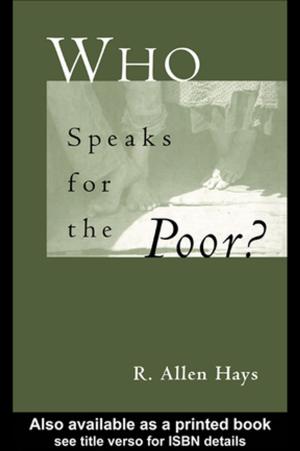The Reinvention of Primitive Society
Transformations of a Myth
Nonfiction, Social & Cultural Studies, Social Science, Anthropology| Author: | Adam Kuper | ISBN: | 9781351852968 |
| Publisher: | Taylor and Francis | Publication: | February 17, 2017 |
| Imprint: | Routledge | Language: | English |
| Author: | Adam Kuper |
| ISBN: | 9781351852968 |
| Publisher: | Taylor and Francis |
| Publication: | February 17, 2017 |
| Imprint: | Routledge |
| Language: | English |
Adam Kuper’s iconoclastic intellectual history argues that the idea of “primitive society” is a western myth. The “primitive” is imagined as the opposite of the “civilised”. But this is a protean myth. As ideas about civilisation change, so the image of primitive society must be adjusted.
By way of fascinating account of classic texts in anthropology, ancient history and law, Kuper reveals how this myth underpinned academic research and inspired political programmes. Its ancestry is traced back to classical western beliefs about barbarians and savages, and Kuper also tackles the latest version of the myth, the idea of a global identity of “indigenous peoples”.
The Reinvention of Primitive Society is a key text in the history of anthropology, and will interest anyone who has puzzled about the very idea of “primitive society” – and so, by implication, about “civilisation”.
Adam Kuper’s iconoclastic intellectual history argues that the idea of “primitive society” is a western myth. The “primitive” is imagined as the opposite of the “civilised”. But this is a protean myth. As ideas about civilisation change, so the image of primitive society must be adjusted.
By way of fascinating account of classic texts in anthropology, ancient history and law, Kuper reveals how this myth underpinned academic research and inspired political programmes. Its ancestry is traced back to classical western beliefs about barbarians and savages, and Kuper also tackles the latest version of the myth, the idea of a global identity of “indigenous peoples”.
The Reinvention of Primitive Society is a key text in the history of anthropology, and will interest anyone who has puzzled about the very idea of “primitive society” – and so, by implication, about “civilisation”.















